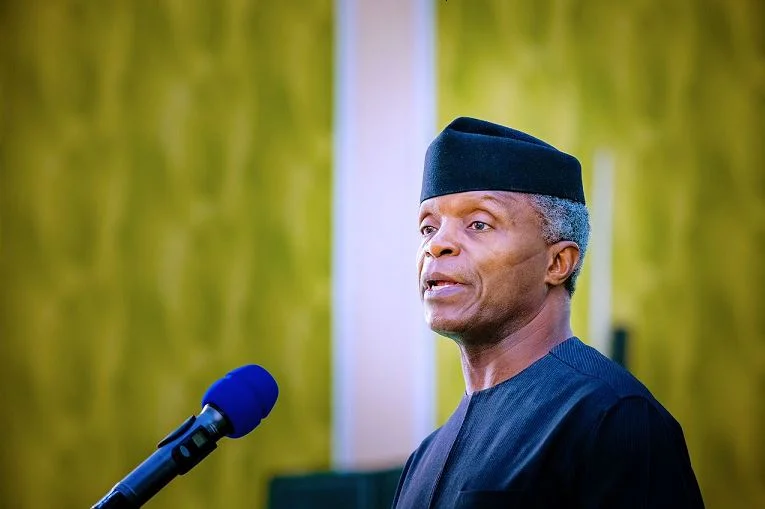Former Nigerian Vice President Yemi Osinbajo has stressed the urgent need for housing reforms that prioritize sustainability and accessibility in response to the continent’s deepening shelter crisis.
Speaking at the 75th World Real Estate Congress organized by the International Real Estate Federation (FIABCI) in Lagos, Osinbajo called for a shift in how real estate professionals approach housing development — from profit-driven motives to people-centered solutions that respond to human dignity and climate concerns.
He emphasized that access to shelter should be regarded as a basic human right, not just a commercial opportunity, and urged real estate stakeholders to embrace their role as social architects rather than merely builders. According to him, Nigeria’s population is growing by six million annually — a demographic trend that continues to outpace housing supply, particularly in urban areas.
“The goal should not be about constructing buildings alone, but about creating communities where people can live safely and with dignity,” Osinbajo said. He added that climate change, conflict, and affordability constraints have compounded the housing deficit, which now stands at over 50 million units across Africa.

He noted that with urbanization accelerating and more than 60 percent of Africa’s population projected to live in cities by 2050, the time to rethink housing strategies is now. Osinbajo called on industry players to integrate sustainable practices that reduce environmental impact while expanding access to decent and affordable homes.
Echoing this message, FIABCI Nigeria President Akin Opatola remarked that housing solutions must prioritize both progress and people. “Lagos exemplifies the kind of urban energy and innovation needed to drive future-forward real estate development,” he said.
FIABCI World President Ramon Riera also praised Lagos as a dynamic venue for the congress, saying it reflected the continent’s potential to shape a more inclusive and environmentally responsible property market.
The conference highlighted the growing consensus that housing should be treated not merely as a financial asset but as a cornerstone for equity, resilience, and inclusive growth.



